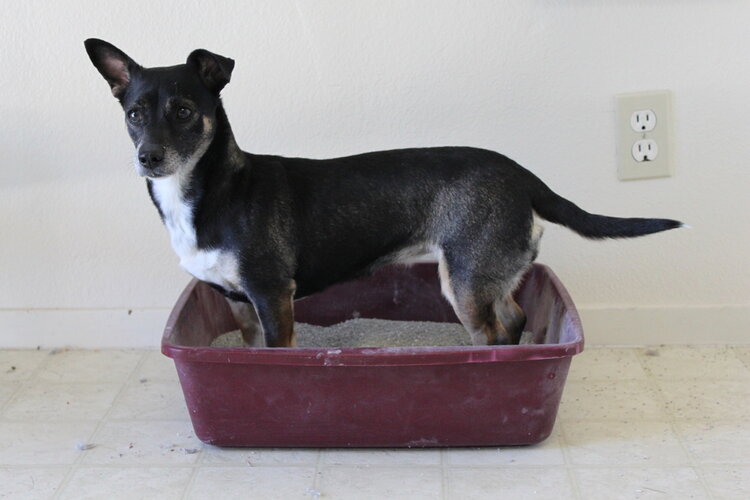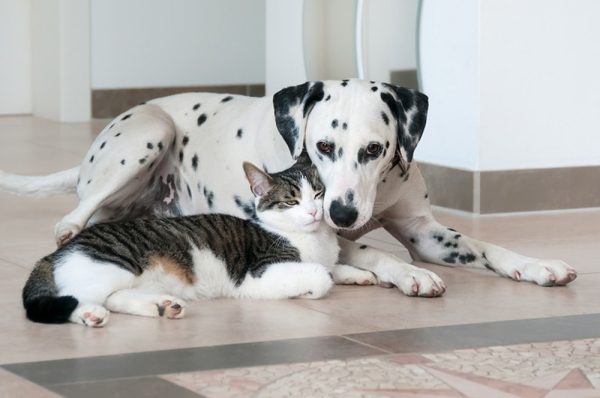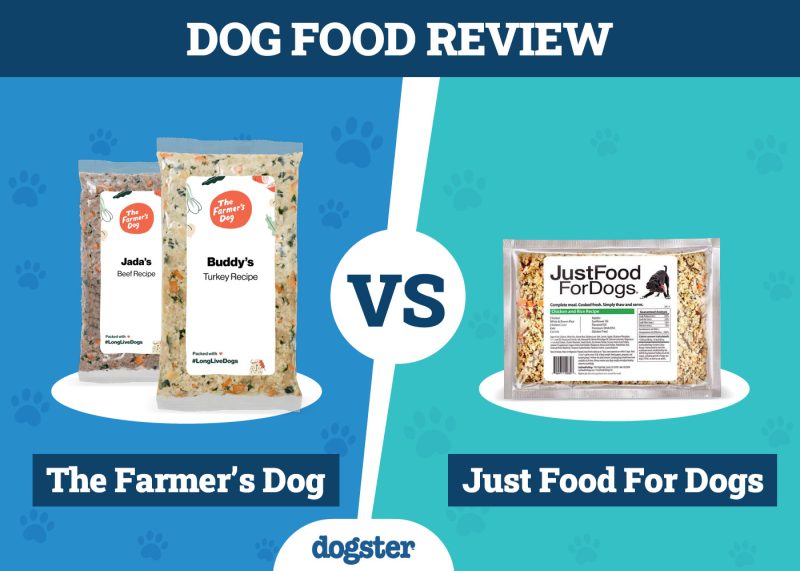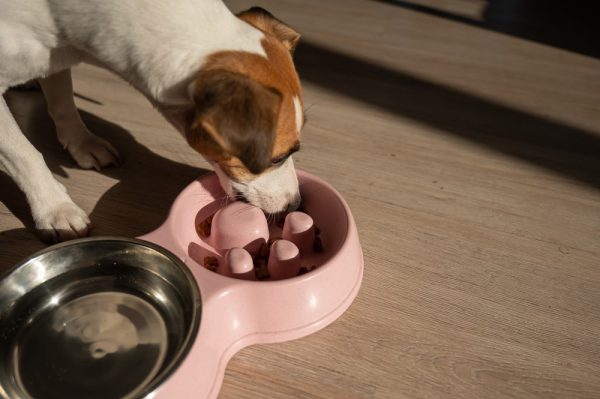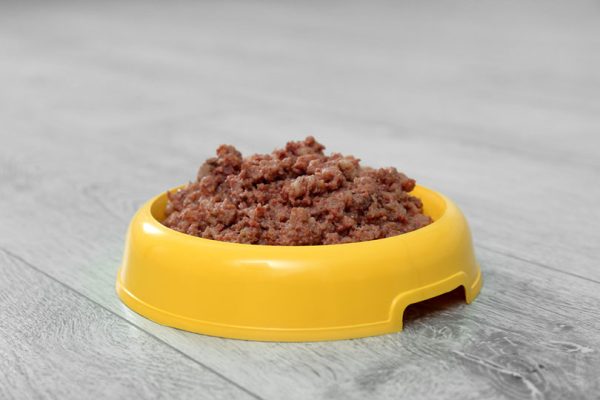When it comes to pets, it’s definitely the more, the merrier! If you have a household with both dogs and cats, you know how awesome that combo can be (especially when your dog and cat are doing something adorable like snuggling). Still, there will be moments where they annoy one another or steal each others’ food or, in the case of dogs, do something gross like getting into the cat’s litter box and eating what it finds there.
Dogs getting into the litter box and eating cat poop is easily one of the top problems owners of both dogs and cats deal with. It can be a huge task trying to keep your pup out of the litter box! Believe it or not, there is a reason your dog is engaging in this behavior, and there are several ways you can keep them from doing it again.

Why Is My Dog Getting into the Cat Litter?
The habit of eating poop, referred to as coprophagia, may be super gross to us, but it’s normal doggo behavior. Dogs are scavengers; they will eat pretty much anything they come across. And they find cat poop to be particularly delicious treats because it smells like cat food to them. The reason it does? A cat’s digestive tract is on the shorter side, so often, their poop can contain nutrients such as protein that haven’t been fully digested.
In a much rarer case, your pup may be chowing down on poop due to a health problem. Certain medical disorders like diabetes mellitus, Cushing’s disease, and intestinal malabsorption/maldigestion can make your dog feel as though they are constantly hungry. The result is them gobbling down anything that resembles food in the slightest.
Will Cat Poop or Litter Harm My Dog?
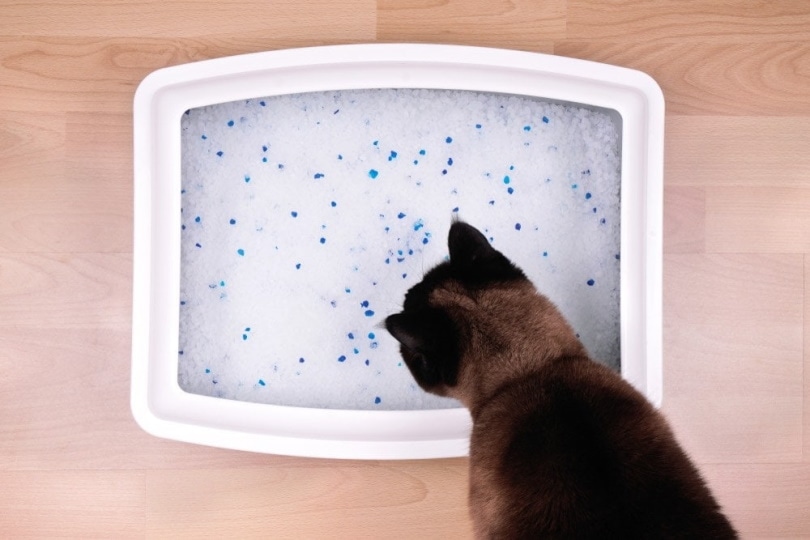
While most of the time a dog eating cat poop will be okay, it can harm them, so it’s a behavior that should be highly discouraged. Cat poop can contain a host of different bacteria and parasites that can make your pup ill. Bacteria can include salmonella, campylobacter, and clostridia, amongst others. To make matters worse, salmonella can be transmitted from dog to human.
Cat poop can also pass along worms, as well as a parasite responsible for toxoplasmosis (which your dog can then transfer to you via a nice sloppy doggy kiss).
As far as litter goes, it can also be dangerous to your dog in large quantities. If your dog eats enough litter, it can result in a blockage in the intestines. The good news is that most dogs would need to eat a ton of litter for this to occur. However, if you’ve caught your dog snacking in the litter box (especially if you have clumping litter), keep an eye on their bowel movements.
If it seems like your pup is having trouble going or if their poop looks different than usual, get them to a vet.

The 7 Ways to Keep Dogs Away from Litter Boxes
Below you’ll find seven ways you can help keep your dog out of your cat’s litter box. They’re all relatively simple, but a couple do require some time and effort on your part.
1. Clean Your Cat’s Litter Box Frequently
Clean out your cat’s litter box as often as you can, preferably as soon as possible after they use it. This method is one that requires your time. It’s most useful for those who are home for the majority of the day (let’s face it, if you work outside the home 8 hours a day, you won’t be able to do this).
If you can’t clean the litter box after every use, try to at least check it at least twice a day. The quicker you get in there, the less often your dog will be able to get a treat.
If you're looking for an all-in-one, pet-friendly, enzyme cleaner, we highly recommend the Hepper Advanced Bio-Enzyme Pet Stain & Odor Eliminator Spray.
- ADVANCED ENZYMATIC CLEANER - Penetrates the most stubborn smells and stains at the deepest molecular...
- FOR ANY MESS, ON ANY SURFACE - This pet odor eliminator cleans your carpets, floors, furniture,...
- FRESH, NATURAL ODOR - Our unique formulation doesn't rely on dangerous or unpleasant chemical...
It eliminates tough stains and odors easily and is excellent for accident prevention. Plus, it comes with a 100% satisfaction guarantee! Click here to order now.
At Dogster, we’ve admired Hepper for many years, and decided to take a controlling ownership interest so that we could benefit from the outstanding products of this cool pet company!
2. Cover the Litter Box
This one is an easy fix to the problem, but it depends on both your cat and dog to be successful. Covered litter boxes can make some felines nervous because they don’t like feeling as though they’re trapped. Depending on your cat, this may not be a good option. Then there’s your dog’s size.
This is great to keep larger dogs out of the litter, but if you have a lap dog, they’ll be able to fit their head in for a quick taste easily.
3. Get Automated
If you aren’t home often enough to clean up after your cat every time they use the litter box, or your cat doesn’t like the idea of a covered box, you may want to try an automated litter box. These litter boxes are fabulous because they will clean themselves after each use.
The downsides are they might make your cat nervous, they can be pricey, and if your dog is super-fast, it might be able to get in there before the self-cleaning begins.
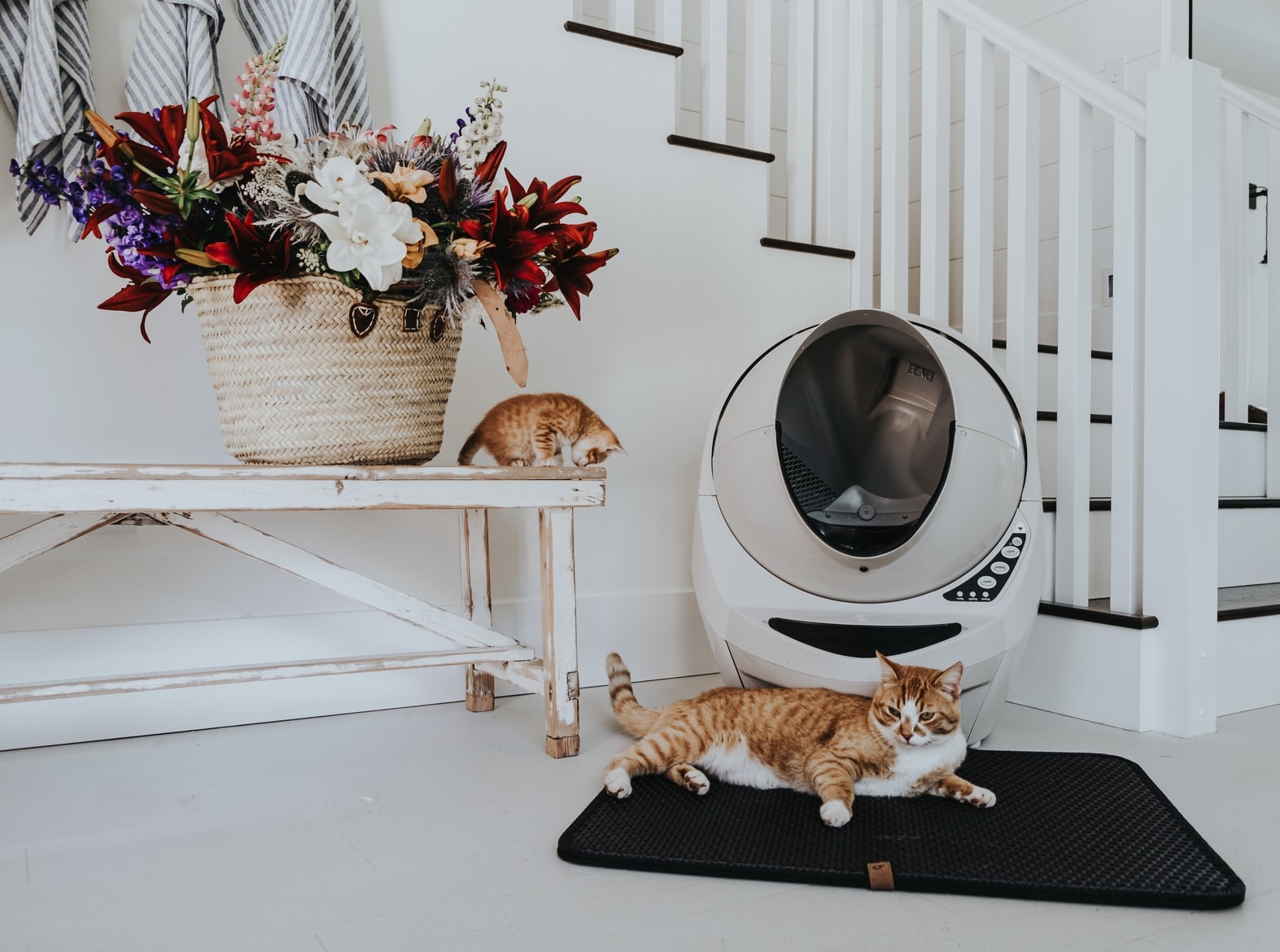
4. Place Your Cat’s Litter Box Somewhere High
Cats love to be up above everybody else, so they may enjoy their litter box being up on a counter or table. And, unless your dog is large or particularly apt at climbing, they won’t be able to get it.
However, if you have limited space in higher areas and will need to use the space for other things, the idea of a litter box being there might squick you out.
5. Keep the Litter Box Area Gated
If changing your cat’s type of litter box isn’t an option, nor is placing it higher, you might want to try a pet gate. Putting up a pet gate will block access to the litter box for your pup, and voila, problem solved!
But how will the cat get to it? You can get a pet gate that has a small pet door in it to let your cat in and out. Of course, that will only work if your dog and cat aren’t close in size.
6. Use a Dog-Proof Door Latch
Similar to putting your cat’s litter box in a gated area, you can also confine it to a room and then use a dog-proof door latch. With one of these, you can leave the door to the litter box area cracked open enough for your cat to slip through while ensuring the crack is too narrow for your dog.
This is another instance where your pets being close in size will make this a poor solution.
7. Train Your Dog to Stay Away from the Litter Box
One final option is to train your dog to stay away from the litter box. Doing this will require the most time and effort on your part. Teaching your dog the “leave it!” command is probably the easiest way to go about training. Say this command while offering your pup a treat that’s way tastier than cat poop, and eventually, they’ll figure out that being good equals a delicious snack.
There’s no guarantee they won’t sneak into the litter box the second you leave the room, however, so it might be better to use this in conjunction with another option from the list. You can also call a vet and ask for help with the training and for some good advice.
If you need to speak with a vet but can't get to one, head over to PangoVet. It's our online service where you can talk to a vet online and get the advice you need for your pet — all at an affordable price!


Final Thoughts
Your doggo may love hanging out in your cat’s litter box and eating poop, but it’s really in their (and your) best interest that they not. There are too many health issues that could arise from doing this (some of which could be passed along to you). This behavior can be hard to break, though, since you’re essentially taking away what’s akin to a treat.
The simplest way to get your dog out of the litter box will be cutting off access to it, getting a different type of litter box, or cleaning the box constantly. Once this is done, you can be sure your dog will be much healthier (if maybe a bit poutier!).
Featured Photo Credit: Jenn_C, Shutterstock
